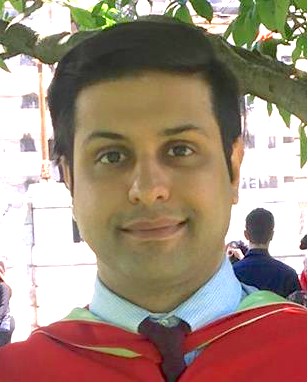Deep Structured Teams: Theory and Application
The Montreal Chapters of the IEEE Control Systems (CS) and Systems, Man & Cybernetics (SMC) cordially invites you to attend the following virtual (online) talk, to be given by Dr. Jalal Arabneydi, professional artificial intelligence scientist in JACOBB, on Wednesday, June 9th, 2021, from 9:00am to 11:00am.
Date and Time
Location
Hosts
Registration
-
 Add Event to Calendar
Add Event to Calendar
Speakers
 Dr. Jalal Arabneydi
Dr. Jalal Arabneydi
Deep Structured Teams: Theory and Application
In recent years, deep learning and deep reinforcement learning have been astonishingly successful in outperforming classical results in some complex applications such as natural language processing, image processing and Atari games. However, with all the recent progresses, there are still some important challenges that need to be addressed such as reliability, scalability, explainability and robustness of the AI algorithms, to name only a few.
As an attempt to address some of the above shortcomings, it is critical to start thinking about a new set of problems called deep planning, where the objective is to study deep structured models parametrically (irrespective of the underlying data sets). On the other hand, deep planning is a difficult problem, in general, and that is why it has not received much attention so far. To this end, we introduce a novel class of tractable deep planning algorithms for sequential decision making in large-scale decentralized multi-agent systems called deep structured team (DST).
In DSTs, agents wish to collaborate to minimize a common cost function while they are coupled in dynamics, cost function and information through a set of linear regressions of the states and actions of all agents. The salient feature of DSTs is that their computational complexity is amenable to the number of agents. In this talk, we present some theoretical results involving Markov chain models, linear quadratic regulators, Kalman filters, reinforcement learning, model predictive control, mean-field approximation, minmax optimization, risk-sensitive cost function, and global convergence of policy gradient methods. In addition, we illustrate the efficacy of the theoretical results by a few toy examples including (a) cyber-physical attacks in swarm robotics and (b) integration of renewable energies in power grids, and (d) control of pandemics. If time permits, we extend DSTs to non-cooperative games, where agents play a non-zero sum game.
Biography:
Dr. Jalal Arabneydi received his Ph.D. degree in Electrical and Computer Engineering from McGill University, Montreal, Canada in 2017. He was then a postdoctoral fellow at Concordia University from 2017-2021. He is currently a professional artificial intelligence scientist in JACOBB. In 2014, he was the recipient of the best student paper award at the 53rd Conference on Decision and Control (CDC). His principal research area is sequential decision making, large-scale systems, multi-agent reinforcement learning, and artificial intelligence. One of his current theoretical research interests lies in the intersection of decision making theory and artificial intelligence. The ultimate goal is to define proper mathematical tools and solution concepts in order to develop large-scale decision-making algorithms that work under imperfect information and incomplete knowledge with analytical performance guarantees. To this end, he has proposed deep structured teams/games as a newly emergent class of decentrazlied large-scale planning algorithms.

